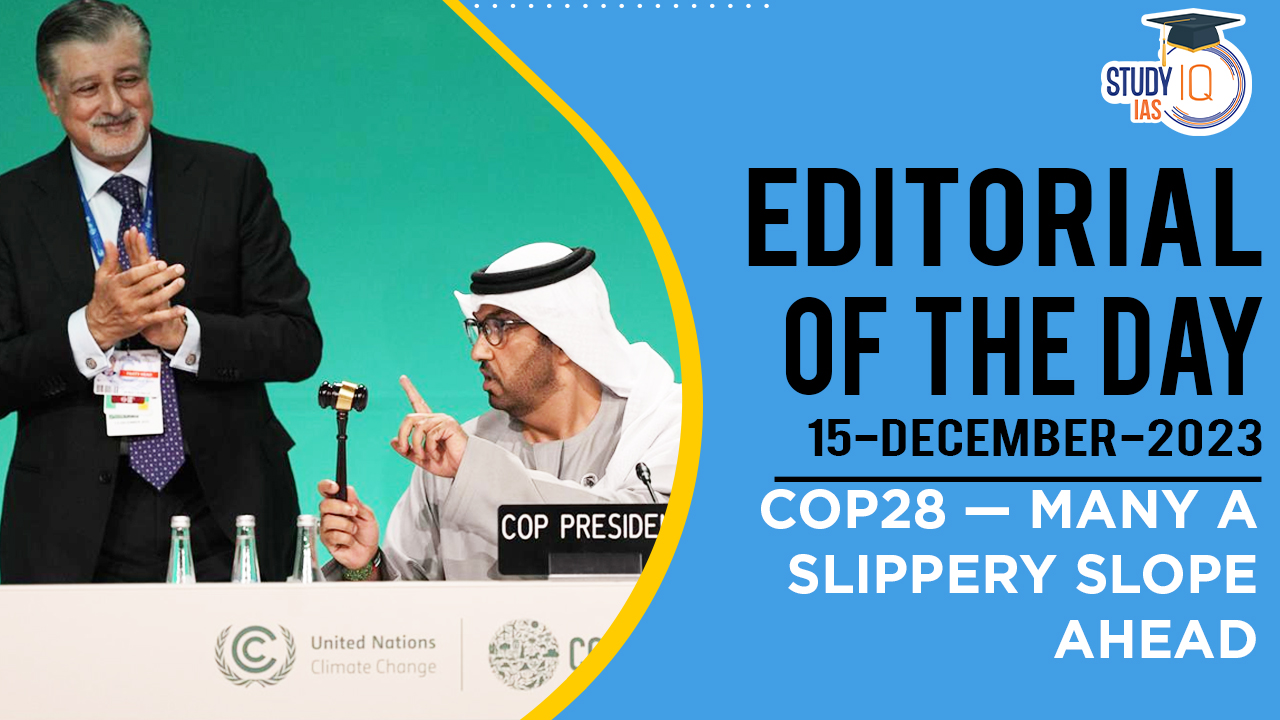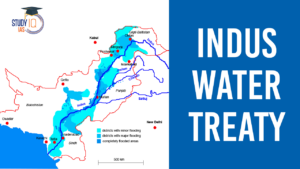Context: COP28, held in Dubai, was a pivotal event in the climate change discourse, particularly because it hosted the first five-yearly global stocktake under the Paris Agreement.
Key Developments at COP28
- Focus on Fossil Fuels: For the first time in climate COPs, there was a major emphasis on fossil fuels, which account for approximately 75% of all greenhouse gases and 90% of CO2 emissions. The leadership of COP28 President, Sultan Al Jaber, who is also the head of the Abu Dhabi National Oil Company, sparked controversy due to potential conflicts of interest.
- Financial Commitments and Climate Finance: The UAE President announced a $30 billion fund for global climate solutions, aiming to attract $250 billion of investment by the end of the decade. Parties to COP28 also pledged $700 million to help lower-income countries with loss and damage from climate change. However, there was a lack of new financial commitments for transitioning away from fossil fuels and adapting to climate impacts.
- Global Stocktake and Emission Reduction Targets: The global stocktake reinforced the urgency of limiting global heating to 1.5° C above pre-industrial levels. Draft texts at COP28 outlined the need for a “deep, rapid and sustained” reduction in global emissions of 43% by 2030 and 60% by 2035, relative to 2019 levels.
- Renewable Energy Commitments: About 118 countries agreed to targets to triple renewable power generation capacity to 11,000 GW and double energy efficiency this decade.
- Methane Reduction Efforts: Fifty oil and gas companies pledged to reach near-zero methane emissions by 2030, with plans to be submitted by 2025.
We’re now on WhatsApp. Click to Join
Challenges and Criticisms
- The final draft text at COP28 included loopholes that could prolong the production and use of fossil fuels, with references to “low-carbon fuels” and “low-emission” technologies, which have vague definitions.
- The role of carbon capture, utilisation, and storage (CCUS) was mentioned, but its commercial viability and emissions savings remain uncertain.
- Concerns were raised about the lack of reference to equity or common but differentiated responsibilities (CBDR) in emission reductions and clean energy shifts, potentially under pressure from countries like the U.S.
- The issue of financial support by developed countries for climate-vulnerable nations was not adequately addressed.
Looking Ahead
Post-COP28, nations face the challenge of bridging an $18 trillion investment gap to meet climate finance needs. There’s an urgent need for increased financing for adaptation and resilience, as well as integrating carbon considerations in decision-making and asset valuation. Additionally, the private sector and international financial institutions play a crucial role in unlocking investments and finding innovative financial instruments.


 Phenome India Project: Mapping India's H...
Phenome India Project: Mapping India's H...
 UDAN Scheme, Objectives, Funding and Ach...
UDAN Scheme, Objectives, Funding and Ach...
 Indus Water Treaty 1960 Suspended by Ind...
Indus Water Treaty 1960 Suspended by Ind...





















